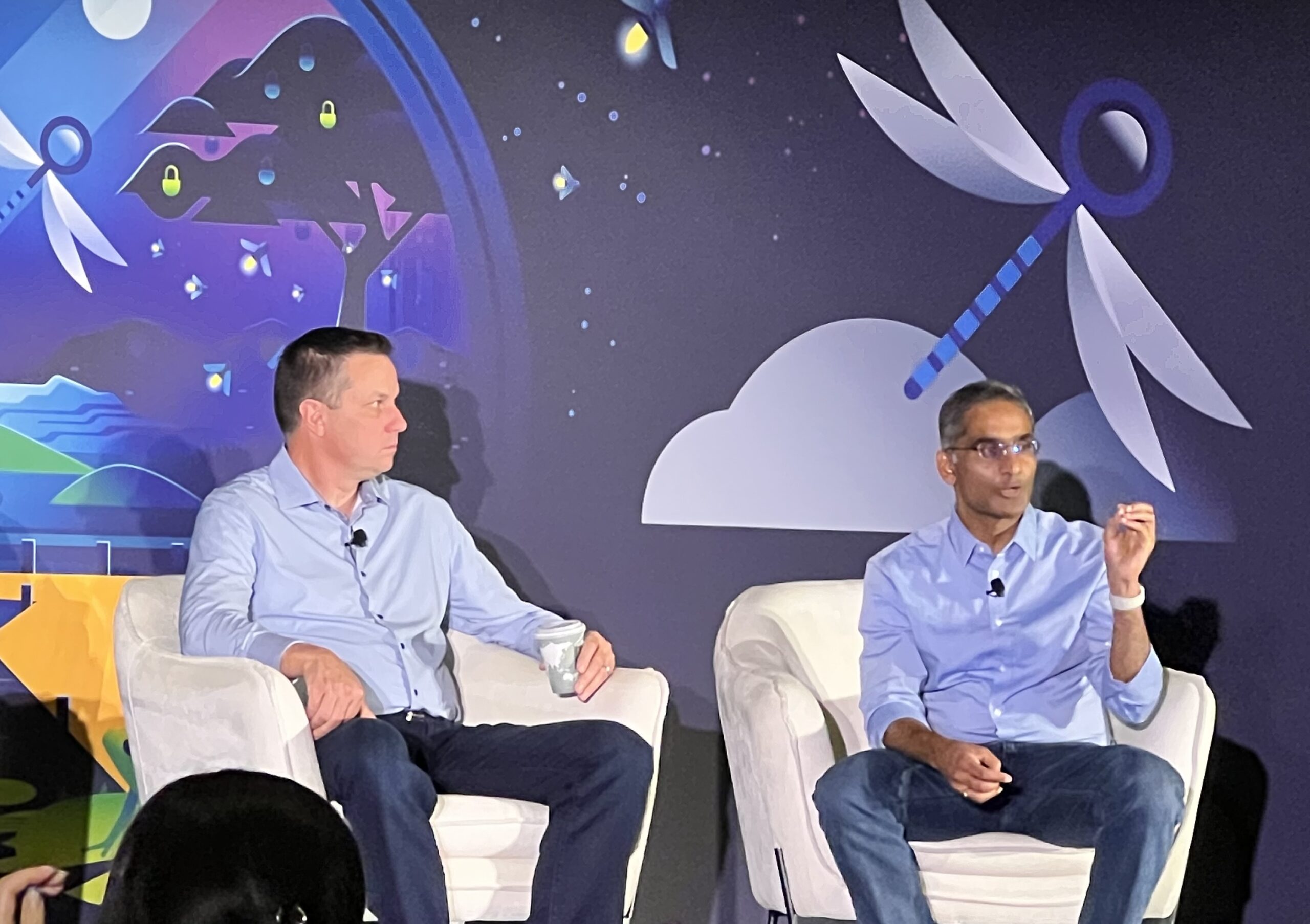LAS VEGAS—VMware by Broadcom’s Discover occasion was headlined with talks on why non-public cloud utilizing non-public knowledge to run non-public AI is the trail ahead for enterprises. “It’s clear to me that the way forward for the enterprise is non-public,” as Broadcom CEO Hock Tan put it in a weblog put up. A sub-theme that performed out, significantly in a full of life session for analysts and media, was how you can greatest community collectively the GPUs, and different knowledge heart infrastructure, wanted to ship AI. Broadcom’s Ram Velaga, SVP and GM of the Core Switching Group, was unequivocal: “Ethernet would be the expertise to make this occur.”
Let’s take a step again. Velaga opened his feedback by suggesting the viewers “take into consideration…what’s machine studying and the way is that totally different from cloud computing?” Cloud computing, he stated, is about driving utilization of CPUs; with ML, it’s the other. “Nobody…machine studying workload can run on a single GPU…No single GPU can run a complete machine studying workload. You must join many GPUs collectively…so machine studying is a distributed computing downside. It’s truly the other of a cloud computing downside.”
For the Amazons, Microsofts, Metas and Tencents of the world, this implies connecting tens of thousand and even lots of of thousand GPUs collectively and, in some circumstances, throughout a number of services. On this downside area, “Community performs a particularly vital function,” Velaga stated. “We subscribe to this concept that the community is the pc.”
What about NVIDIA’s InfiniBand?
And to attach that laptop, Ethernet is the way in which, Velaga stated. The choice right here can be NVIDIA’s InfiniBand, a proprietary set of options the GPU large describes as well-suited for “complicated workloads [that] demand ultra-fast processing of high-resolution simulations, extreme-size datasets, and extremely parallelized algorithms.” InfiniBand, they proceed, “supplies dramatic leaps in efficiency to realize quicker time to discovery with much less value and complexity.”
Not the case, Velaga stated. InfiniBand is pricey, fragile and predicated on the defective assumption that the bodily infrastructure is lossless. As for Ethernet, which was standardized within the Eighties and has been the topic of ongoing innovation and development since, he delineated the next promoting factors:
- Pervasive deployment
- Open and standards-based
- Highest Distant Direct Entry Reminiscence (RDMA) efficiency for AI materials
- Lowest value in comparison with proprietary tech
- Constant throughout front-end, back-end, storage and administration networks
- Excessive availability, reliability and ease of use
- Broad silicon, {hardware}, software program, automation, monitoring and debugging options from a big ecosystem
To that final level, Velaga stated, “We steadfastly have been innovating on this world of Ethernet.” And, “When there’s a lot competitors, you haven’t any alternative however to innovate.” InfiniBand, he stated, is “a highway to nowhere.”
To help that place, he pointed to the nascent work Microsoft and OpenAI are engaged in to in some unspecified time in the future construct the $100 billion Stargate, primarily the info facilities, or supercomputer in case you like, that might finally run OpenAI’s giant language fashions utilizing thousands and thousands of AI chips. There’s loads of reporting on the market however the gist appears to be that whereas Microsoft is at the moment utilizing InfiniBand, OpenAI prefers Ethernet, so Ethernet will most likely win out.
“We will in the present day,” Velaga stated, “deploy one million GPU cluster on Ethernet. InfiniBand can’t even scratch the floor of that.”


